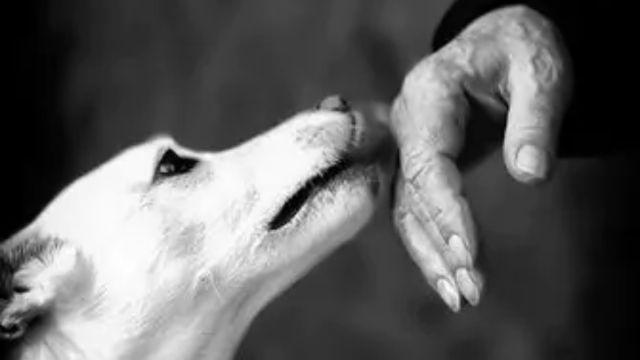Could you counsel troubled pooches?
I have a new dog, a “troubled” rescue dog. Last week it mastered “sit” and “please”. “I am a genius,” I thought, “It understands me. We have connected.” According to canine behaviourist Stan Rawlinson, this naivety is part of the problem that many owners have when trying to communicate with their dogs. He says: “Some people imagine that their dogs are able to understand complex thought patterns and comprehend our moral and ethical codes.”…
If you love animals and psychology, why not combine the two and be a dog behaviourist?
By Hazel Davis
Published: 05 July 2007
I have a new dog, a “troubled” rescue dog. Last week it mastered “sit” and “please”. “I am a genius,” I thought, “It understands me. We have connected.”
According to canine behaviourist Stan Rawlinson, this naivety is part of the problem that many owners have when trying to communicate with their dogs. He says: “Some people imagine that their dogs are able to understand complex thought patterns and comprehend our moral and ethical codes.”
But, says Rawlinson, animals work on drive levels and instinct. They do not have the capacity to comprehend the complex thought processes that bring us to understand human emotions, language, and behaviour.
“A dog trainer trains dogs in general obedience and works with dogs that are showing abnormal behaviour,” he says. “A dog behaviourist might intervene if a dog’s response to certain stimulation is out of context with what we would expect from a dog.”
Rawlinson runs a successful practice in Greater London and is the founder member and chairman of PAACT, the Professional Association of Applied Canine Trainers.
A life-threatening accident made him decide to strike out full-time as a trainer and behaviourist. Having studied human psychology, he began to do courses in animal care, canine behaviour and animal psychology. Rawlinson says, “I never stop studying. I am taking a number of advanced courses just to keep up with the latest scientific findings.”
There are different approaches to dog behaviour training. Rawlinson’s own is in contrast to the “act like a dog” ethos. “We do not have four legs, a tail, anal glands, nor are we covered in fur,” he says. ” Dogs know we aren’t like them. They can form an incredibly close alliance with humans but we cannot be an alpha male or female.”
Whatever route you take, to become a dog behaviourist, says Rawlinson, formal training is very important. “But it’s like learning to drive from a book. I see many people leaving university with a degree and no practical experience, in fact some have never owned or trained a dog.” He adds that you need to be patient, understanding, gentle and a good communicator – with dogs and humans.
Clare Ackroyd is a dog behaviourist in Queensbury, near Bradford. She says she showed an affinity with animals at a young age and always wanted to work with them. “I was always drawn to watching how the animals behaved and what they were saying,” she says. “I wanted to be a vet but ended up becoming a scientist, took redundancy and qualified through open learning as a canine psychologist.” According to Ackroyd, the skill and brain power required to fix some cases is underrated.
“Dogs have made the transition to cohabiting with humans look easy,” she says. “But in terms of basic genetics they live their lives to predetermined rules. It is humans who control the dog’s basics of life: sleep, play, food, reproduction and environment.”
For animal behaviourists, the work is not about the money. Ackroyd says that she will never be a millionaire. She works unsociable hours in a not very glamorous job. But the rewards can be manifold, she says.
Rawlinson agrees. he says that he has a little Jack Russell/ Dachshund cross called Charlie whose early experiences were so horrific that he should have every hang-up in the book. “I decided to treat and rehome him with me. He has now made a full recovery, his confidence has soared, and once again he loves and trusts people.”
If that’s not enough to make you want to become a behaviourist, I don’t know what is…
Stan Rawlinson: www.doglistener.co.uk; Clare Ackroyd: www.healthidog.com
How to get in
* Make sure you are used to dogs and don’t just want to stroke the nice ones
* Spend time observing dogs’ behaviour
* The Academy of Dog Training and Behaviour (www.dogtraining-online.co.uk) offers a range of courses and links to local trainers
* The Open College (www.opencollege.info) runs canine psychology courses
* Many universities offer degrees in animal psychology






